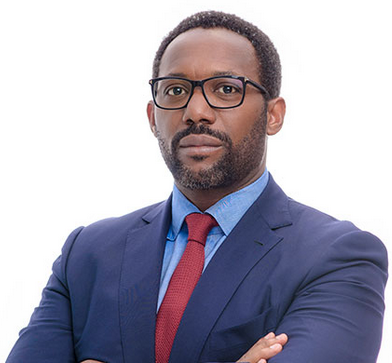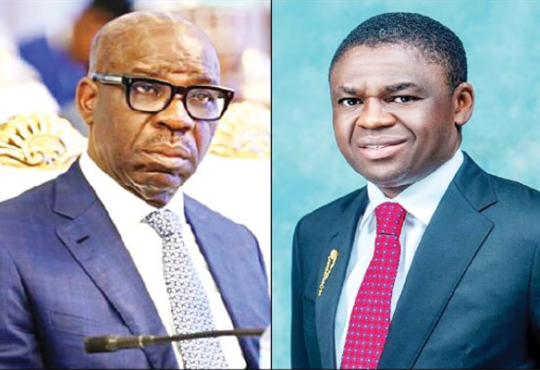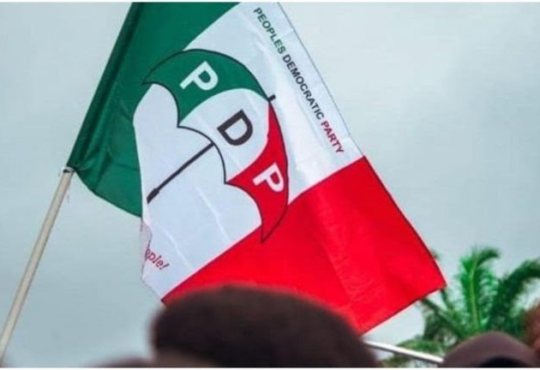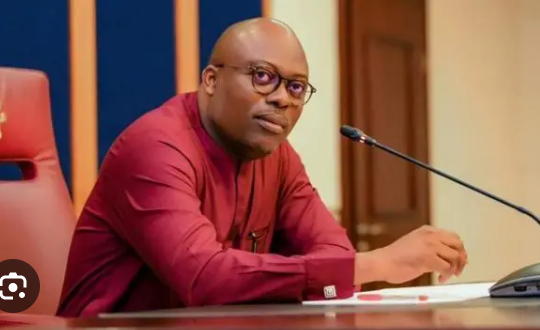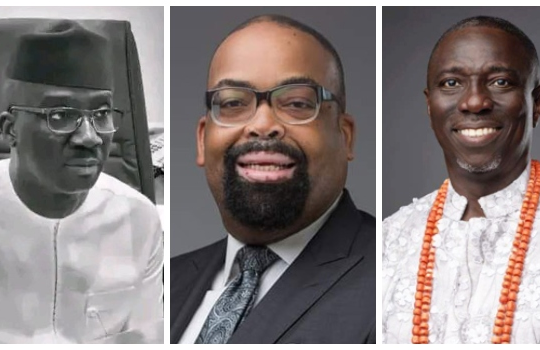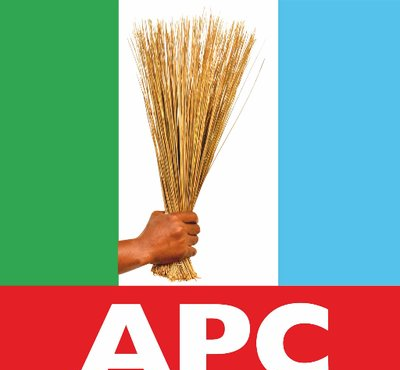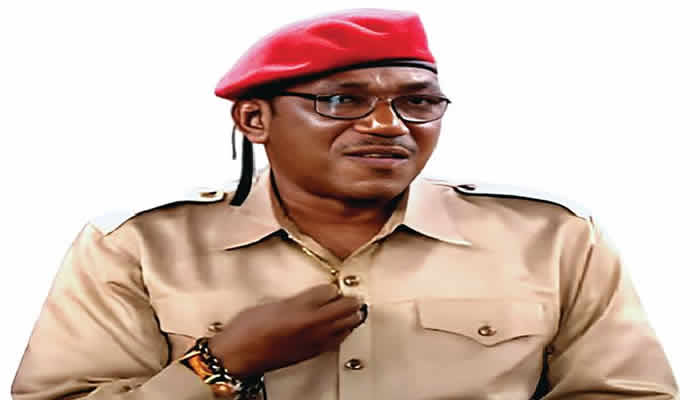
Former minister of Youth and Sports, Solomon Dalung, speaks to JAMES ABRAHAM about the state of the nation, Plateau State Assembly crisis, among other issues
What is your view about the controversy in the Plateau State House of Assembly where some members declared winners by the Court of Appeal have been sworn in, while others have yet to be sworn in?
What is happening at the Plateau State House of Assembly is rather unfortunate. We are under a democracy that is governed by the rule of law. The Court of Appeal under our constitution is the court of final jurisdiction when it comes to state and National Assembly election matters and the court has so ruled. That is the law.
We have to accept the verdict whether anybody likes it or not. The rule of law must be upheld in a democracy. The Court of Appeal has the final jurisdiction on state legislature election issues according to our constitution. Once the court decides that the decision is binding. So, the Plateau State House of Assembly cannot selectively follow court orders.
What do you think is the way out of this matter?
When the Supreme Court declared Governor Mutfwang as the governor of the state, all of us were happy. There is nothing anybody can do about it, whether you like it or not because the Appeal Court which is the final court in that matter has so declared. That is the law and that is final. So, the Speaker must swear in all members declared winners by the court, as mandated by law. Any delay or refusal to do so is a call for anarchy.
But the Speaker has mentioned receiving two court processes from the two contending parties regarding the situation and is waiting for the final decision of the court. What do you think about this?
Let him tell us which of the court orders allowed him to swear in the nine members that he swore in recently. Which of the court orders restrained him from swearing in the remaining members? The Speaker should not take Plateau people for granted. The law is clear, and he must comply with it.
Many elections in Nigeria are challenged in court, making the judiciary the ultimate decider of public officeholders. What are your thoughts on this?
It is only in Nigeria that you find this kind of thing. Ideally, the judiciary should only evaluate the compliance of elections with the law, annulling them, if necessary, not declaring winners. That is how it should be, but due to politicisation and corruption, the judiciary often determines outcomes, and this is unique to Nigeria.
You served as a minister under former President Muhammadu Buhari’s administration and many people have continued to blame the current hardship and suffering being faced by Nigerians on the poor management of the economy by the past administration, which you were part of. How do you feel about it?
I have always said that former President Muhammadu Buhari failed to implement his four-point agenda very well but there were also many things he did well. For instance, he brought stability to the Niger Delta region which was boiling when we came to the extent that our production quarters collapsed from two million barrels a day to slightly over 700,000 a day. There were steps taken by the Buhari administration from the beginning to deal with the challenges of insurgency which is better than where we are today because if Bola Tinubu’s government will blame Buhari, I will appeal to President Tinubu to kindly take Nigeria back to May 29, 2023, and Nigeria will be okay.
Are you saying that Nigerians were better off under the Buhari administration than what obtains today?
Buhari’s abysmal performance is far better than where Nigeria is today under Tinubu. As it is today, over 70 million Nigerians have been crossed into poverty in one year. The statistics of Nigerians who have died from hunger and poverty are also alarming, and Nigerians can no longer travel from one point to the other because the transport fare has gone beyond the reach of the average Nigerian.
Today, foodstuff which is a necessity is not affordable to the common people of this country. In our healthcare delivery, Nigerians have now reversed to traditional medicine and practice because they cannot even afford the modern healthcare delivery system, and even if they approach the hospital or a clinic, the same private clinic is also out of reach for most Nigerians. So, the situation today is far worse than what occurred under former President Muhammadu Buhari’s era.
Specifically, how will you react to the argument that the current hardship Nigerians are facing has a link with how the immediate past administration managed the economy?
President Tinubu is not a stranger. He did not suddenly emerge from the blues to contest the election because he was the national leader of the All Progressives Congress, and the party that has succeeded Buhari is the same party, which is the APC. Therefore, it is strange and ridiculous for this government to begin to heap the blame on Buhari.
Muhammadu Buhari implemented the APC manifesto and Tinubu is also implementing the APC manifesto. So, I’m at a complete loss as to where this blame game comes from. But I have concluded that they have lost touch with reality. It’s obvious that the present government under President Tinubu did not have any idea as to what to do because Tinubu assumed that it was going to be easy for him to grab the power and run away with it as he did mention during his campaigns.
Now, he has grabbed the power, and he cannot run away with governance. As it is, he is stuck now with governance. So, I am of the opinion that he should sit at his table, devote more time to the issue of governance instead of globetrotting and junketing in and out of Nigeria with his family members and cronies. I do not think Buhari handed over this to him as well.
Some have argued that one year is not enough time to assess the performance of President Bola Tinubu’s administration. What is your take on this?
If after spending one year in office, Nigerians cannot feel the impact of positive governance, then there is a problem. To be very candid, in one year, President Tinubu’s administration has not done well. But to be fair with the government, Tinubu’s administration has been battling with the issues of insecurity, and every day, the military will give us statistics of bandits’ kingpins that have been eliminated.
I had expected that this would also minimise the level of attacks in our communities and also reduce violence. But it all seems to me that the positive report of our security forces which has been going on cannot be reconciled with the realities on the ground, because even here in Plateau State, just a few days ago, over 40 people were killed in one of the communities.
The military has been at war with Nigerians in Nigeria Delta. Now, they are in Abia state doing the same thing. Therefore, with the level of insecurity, I will score them very low. I also find this administration quite incredible because it has rather compounded our situation instead of ameliorating it.
Instead of palliative distribution bringing succour to the current hardship, the government has now produced another new calamity where administrators of palliative will just go and procure a few quantities of foodstuff and then invite a multitude of people who are twice or thrice the palliative and people will come and scramble for the foodstuff, and we have a statistic of Nigerians dying in their numbers, because of stampede. So, for the palliative regime, the administration has performed poorly.
The only progress recorded here is that a lot of resources have been looted by those who were given the money to administer the palliatives. On the management of the economy, I have also faulted Mr President’s strategy of floating the naira and withdrawing fuel subsidy without an effective shock absorber mechanism on the ground to deal with the consequences which have now led us to over 38% galloping inflation. So, the management of the economy has been quite abysmal that every day, you cannot predict what will happen.
But the President has shown boldness in embracing the Oronsaye report. Is that not a way forward for the country?
He has demonstrated insensitivity to the challenges because Mr President cannot withdraw subsidy, float the naira and at the same time constitute a cabinet of over 50 ministers and expect us to believe that he is committed to prudent management of the Nigerian economy. I had wanted to commend him for the approval of the Oronsaye report, but on the contrary, every day, Mr President is appointing his cronies from Lagos into some of those agencies that have been recommended for scrapping by the same Oronsaye report. You begin to wonder if the government is serious at all in what it is doing.
The question is why the approval of the implementation of the report? Could it be that he will now saturate the system with his political associates and family members before he will come back and sack them? Again, I have noted that the present administration is bereft of ideas. All they do is comedy and drama. So, Mr President has presented himself as one of the courageous people who have confronted the issue of fuel subsidy removal; meanwhile, we were informed reliably that the subsidy had since returned and that was confirmed recently by one of his ministers. That is hypocrisy and lies.
His statement on the removal of fuel subsidy has affected the living conditions of Nigerians and affected the prices of goods and services and importation to the extent that they are beyond the reach of the people. Nigerians have continued to face severe pain and hunger every day. So, if I’m to rate the performance of the present government in terms of percentage, I will give them 10 per cent because the only thing they have done with the 10 per cent in my assessment is that he was able to reverse the Nigerian National Anthem in less than 24 hours in conjunction with the National Assembly. This means that Mr President and the National Assembly are in a conspiracy to move the country backward. With the speed they reversed the national anthem, they can also do the same and reverse all the calamities Nigerians are facing, but we have not seen it.
The reversal of the anthem shows me that Mr President is out for something beyond the knowledge of many Nigerians. Unfortunately, they have abandoned what should have been their priority which is how to banish hunger and hardship currently being faced by Nigerians.
Do you see a way out of the present situation?
The President cannot claim ignorance of the gravity of the times that we are. As of the time he made that statement on subsidy “that subsidy is gone”, there were only two people in government: himself and his vice. There were no advisers who could advise, and there were no experts that he consulted before making the statement. It is uncharitable for him to have made the statement, knowing too well that former President Muhammadu Buhari administration did not do well, and all he could do was to compound the situation.
The only way out is for him to reintroduce a subsidy. A transparent subsidy regime should be reintroduced but this time, I suggest it should be 100 per cent. But they can introduce 60% subsidy, in the prices of pump price of petrol thereby taking down the price to N200, N160 or thereabout. This administration is bloated. It’s not committed at all to dealing with the challenges. He has to cut the size of his cabinet.
I think ex-President Buhari is more honest than Tinubu because President Muhammadu Buhari in his first term appointed only 36 ministers, and each of the ministers was given approval to appoint only two aides. But President Tinubu, who is crying foul for inheriting a bad economy, has over 50 ministers and each of the ministers have appointed aides, some 15, some 10, and some 20 aides.
Insecurity has taken a different dimension, and every successive government has not tackled this problem. What do you think is the way forward?
Governments lack the political will to address insecurity due to vested interests. If treated purely as criminality and addressed with the law, insecurity could be resolved quickly. However, the political class is often detached from the direct impacts. The insecurity may be happening in their constituency, but it has not affected their family members and their children. So, they aren’t motivated to act decisively.
Do you think the move by the National Assembly to reintroduce regional government is a step in the right direction?
Absolutely! The regional system agreed upon in the 1954 Lancaster House is the best structure for Nigeria. That is the one Nigerians debated and approved for themselves. A parliamentary system ensures more accountability, as government actions must be discussed and approved by the parliament, preventing unilateral decisions by the executive.
Those who are pushing for a motion for the country to return to a more functional parliamentary system should approve it with the same speed with which they used in changing the current national anthem.
There has been serious underdevelopment at the local government level, and many have blamed it on some governors who are in the habit of tampering with local government funds. What is your reaction to this matter?
Achieving local government autonomy requires a fundamental change in governors’ attitude, which seems unlikely. Governors typically control local governments through joint accounts, using the funds for personal or political gain. They use the local governments to advance their political grip in the state. That’s why those who occupy positions at the council level behave or are more or less personal assistants to the governors. So, local government autonomy is resisted because it will reduce the governors’ control over resources.
There has been no local government in Nigeria since 2002. Forget what Mr President is doing in dragging the governors and trying to grant autonomy to the LGs. He was governor of Lagos State and did not grant autonomy to Lagos LGs. At what point did he realise the need for LG autonomy? Local government autonomy cannot be achieved if a parliamentary system of government is not in place. There is nothing that can come out of the present presidential democracy which we are practising at the moment.
The Organised Labour and the government have been at loggerheads over the minimum wage increase. Do you think the demand for N250,000 increment by Labour is justified?
The demand by Labour is justifiable because if Nigeria has no money, the members of the National Assembly cannot buy luxury cars worth N160m. That is just their cars aside from other privileges. Labour unions’ demands are justifiable because the president has at different levels shown that he is not prudent in spending money. He went to Dubai with the highest number of delegations.
The demand of Labour is justifiable because today, a measure of garri is worth N2,000. School fees have risen astronomically. The demand of labour is justified because when President Tinubu took over, he had been travelling with a minimum of 20 of his aides whose values to the journeys you cannot tell. Labour’s demand is justified. The budget for members of the National Assembly that have been passed and the allegations of multiple padding of budget for themselves only makes the demand of organised labour justified.
The demand is justified because the budgetary system is not transparent or accountable. Labour’s demand is justifiable when you look at the President whose wife said they don’t need Nigeria’s money, his residence is in Abuja, and he is budgeting billions of naira for personal expenses. Labour has been so charitable with their demands considering the lifestyle of members of this administration.
So, if President Tinubu believes Labour’s demand is unreasonable, he should begin with the government. A president of Nigeria should behave like Buhari, who cut down his cabinet size and did not buy any presidential vehicle for four years. As a minister, there was no official car for me. I had to use my car for four years. Nigerians cannot be asked to sacrifice if the government, ministers, and special advisers cannot. You cannot ask the civil servants who help you transcribe these documents and how these monies are spent to sacrifice. So, I am standing on the side of Labour, 100 per cent.
Many state governors are known not to have implemented the N30,000 minimum. Do you think they can pay the new wage being demanded by Labour?
There is a lack of transparency and accountability in governance. The former governor of Kogi State refused to pay the salaries of civil servants but paid the expensive school fees of his children upfront. There was money, but this presidential system of democracy we are practising is not good for developing countries like Nigeria because it creates executive monsters that perfect the trick of how to subvert the constitution and loot the treasury.
Some of the governors are doing very well. I just came back from Gombe State, and I couldn’t believe that Governor (Inuwa) Yahaya could do what he has done in five years in Gombe State. So, they can pay salaries and work and even increase the internally generated revenue in a self-sustaining way. It is not that the states cannot pay money because they have no money to pay. No, the revenue of some of the states is spent only on one person who is the governor and his family. The legislature of most of the states has been pocketed by the governors.
The speaker is the errand boy of the governor; the principal officers are the same. This type of democracy will not take Nigeria anywhere. So, it is not because there is no money to pay but because some governors have cornered the entire resources meant for the state into their pickets.
Are you satisfied with the performance of Governor Caleb Mutfwang of Plateau State in the last 12 months?
Governor Caleb Mutfwang of Plateau State has been able to perform in one year more than the eight years of the APC administration in the state because the governor within a year embarked on a massive transformation of the road network in Jos and Bukuru metropolis. He has also transformed the Plateau State to have an efficient mass transit bus system to alleviate the sufferings of the people in the transport sub-sector, including procuring the ones moving from the state to other states.
He has equally demonstrated leadership in addressing the issue in the agricultural sector because fertilizers and other inputs have been distributed to farmers on the Plateau, not once, not twice. He has also done well in the area of palliative distribution but where I fault the governor is in the manner of distribution because the palliatives were distributed only to his party men and women
The fertilizers were also distributed to his PDP members. I faulted the governor because as a leader, he is the governor of Plateau State and not that of the PDP. The supervision of the distribution of fertilizers was also poor because there were instances where the fertilizers and the palliatives meant for the people in the state were found in the open market while a lot of them even found themselves out of the state. In those areas, the governor did not do well and he needs to work on them.
Again, on the crisis in the state House of Assembly, the governor should be able to address the issue beyond sentiment. He is not the first governor with a predominant opposition majority in the state Assembly. Peter Obi went through the same and he was able to deal with the situation. So, I expect the governor to put to rest the lingering crisis in the state Assembly and do away with the haphazard inauguration of members. He should engage some elder statesmen and fathers of the state, including stakeholders, to engage the Assembly members on a common agenda geared towards Plateau State peace, unity and progress.
I must point out that Governor Mutfwang has also done very well in managing our diversity. Looking at the division during campaigns and how he has been able to navigate despite the prolonged election tribunal dispute, he has settled down and managed our diversity effectively.
Some Plateau youth groups have disclosed that about 151 communities are currently under the occupation of terrorists in the state. Does this worry you?
I’m devastated by the daily loss of lives and our ancestral lands to criminal gangs that have taken arms against the indigenous communities. It is very worrisome, and I think that every right-thinking individual on the Plateau should be concerned. But the government has to devise a strategy for dealing with the situation because I do not want to believe that the government is helpless. After all, it is the government of the people of Plateau State.
I want the governor to embark on a strategic and robust engagement of selected stakeholders who have very sound security orientation and political experience to take a better look at the unfolding scenario and advise him on the immediate steps to be taken which will include mobilising the people to be conscious of the current situation.


